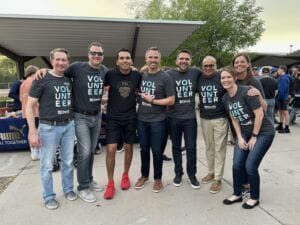Six Arizona health agencies providing family planning healthcare services to low-income residents at clinics in eight Arizona counties have been awarded a total of $2.7 million in Title X grants through a competitive grant process administered and managed by the Arizona Family Health Partnership (AFHP).
The grants will provide funding for nine months beginning April 1 for services that include pregnancy testing and counseling, contraceptive methods, breast and cervical cancer screening, achieving pregnancy, basic infertility services and preconception health. Federal funds cannot be used for abortion services.
The six agencies will use the funding to serve an estimated 35,000 clients at no charge or on a sliding scale based on income in Coconino, Gila, Graham, Greenlee, Maricopa, Pima, Yavapai and Pinal counties. Title X is the only federal grant program dedicated solely to providing individuals with comprehensive family planning and related preventive health services. The Title X Family Planning program was enacted in 1970 as Title X of the Public Health Service Act.
Agencies receiving funding are Canyonlands Healthcare (Graham, Greenlee, Gila counties)), Pima County Health Department, Pinal County Public Health Services District, Planned Parenthood Arizona (Maricopa, Pima and Coconino counties), Yavapai County Community Health Services and Wesley Community Center (Maricopa).
For more than 40 years, Title X family planning clinics have played a critical role in ensuring access to a broad range of family planning and related preventive health services for millions of low-income or uninsured individuals nationwide.
“Our goal at Arizona Family Health Partnership is to build strong Arizona families by providing them with the healthcare services and counseling to make thoughtful, balanced and educated decisions about family planning,” said AFHP CEO Brenda “Bré” Thomas. “The process used to determine how Title X funding is allocated in Arizona is highly competitive based on rigorous standards for quality of care and sustainability.”
“Access to adequate healthcare and education is vital for women, men, teens and families,” Thomas said.




